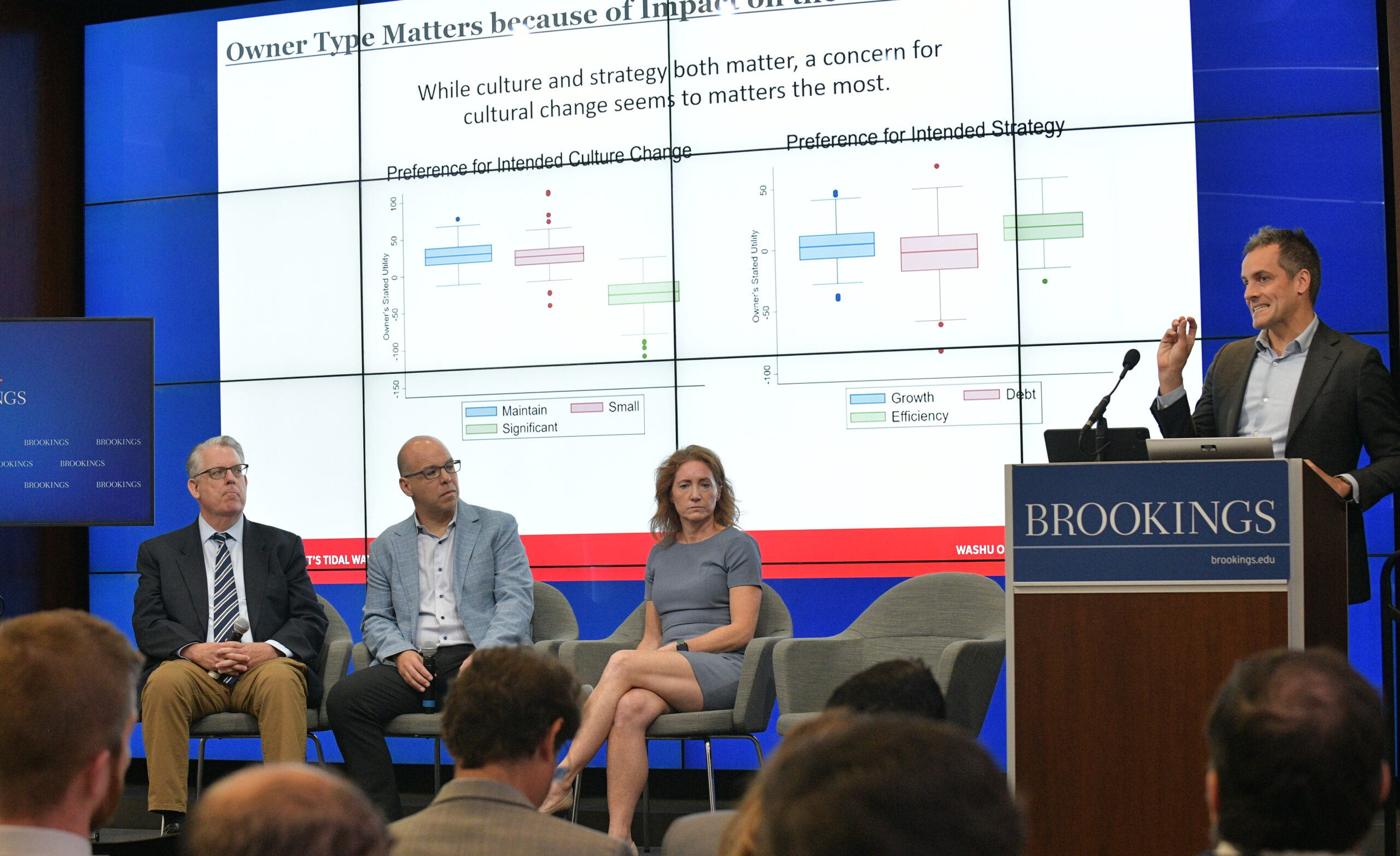The Silver Tsunami: Navigating the Future of Small and Medium-Sized Business Ownership
In the coming years, a significant demographic shift is poised to reshape the landscape of small and medium-sized businesses (SMBs) across the United States. Nearly half of current SMB owners are expected to retire, leading to an estimated $100 trillion in businesses that will either be transferred to new owners, inherited, or sold. This unprecedented wave of ownership transitions, often referred to as the "silver tsunami," is set to create ripples throughout communities and the broader economy, as highlighted by recent research from the Olin Business School at Washington University in St. Louis and the Brookings Institution.
The Unpreparedness of Business Owners
Despite the inevitability of these transitions, many business owners find themselves ill-prepared. Research indicates that over 85% of SMB owners lack a formal succession plan, according to Peter Boumgarden, the Koch Family Professor of Practice in Family Enterprise at WashU Olin. This lack of planning not only jeopardizes the future of individual businesses but also poses risks to jobs, community cohesion, and local economies. Boumgarden emphasizes that without thoughtful planning and policy interventions, both local and federal governments may struggle to manage the impending transition effectively.
The Role of the Olin Brookings Commission
To address these challenges, the Olin Brookings Commission, led by Boumgarden and Aaron Klein from the Brookings Institution, has dedicated the past year to studying the implications of this ownership transition. Their research focuses on three key stakeholders: investors, owners, and employees. With generous support from The Bellwether Foundation Inc., the commission aims to provide actionable insights and policy recommendations to facilitate a smoother transition for all parties involved.
On October 8, the commission presented its findings and policy recommendations at the Brookings Institution in Washington, D.C. Boumgarden remarked, “Fortunately, this silver tsunami does not have to be a man-made disaster. As ownership changes hands, there is a significant opportunity for us to reimagine ownership structures, including increasing employee ownership, promoting long-term investor behavior, and fostering greater inclusivity in business leadership.”
Understanding Perspectives: Investors, Owners, and Employees
To gain a comprehensive understanding of the ownership transition landscape, the commission conducted interviews and surveys with private investment professionals and nearly 200 SMB owners. They also tracked outcomes for nearly 500 employees from firms that underwent various types of ownership transitions, including employee ownership, family transitions, competitor purchases, and private equity acquisitions.
Key Findings
-
Diverse Investor Strategies: The research revealed that investment strategies for small and medium-sized enterprises differ significantly from those targeting larger firms. While SMB owners often sell to family members, individual buyers, or competitors, private equity investors are increasingly interested in the lower middle market. The study found that private equity investors typically pursue aggressive strategies focused on high-value exits, while employee ownership models tend to prioritize stability and employee incentives.
-
Owner Priorities: Business owners place a high emphasis on the financial value of a deal, but they also consider the nature of the buyer and the potential impact on company culture. Many owners prefer to sell to family members or employees rather than competitors, as they are concerned about preserving the company’s culture and values.
- Employee Outcomes: The transition to employee ownership models yielded the most favorable outcomes for employees. Over 80% of employees in these firms remained with the company for at least five years, reporting improvements in job quality and stability. Conversely, employees at companies purchased by competitors experienced the worst outcomes, with lower retention rates and declines in job satisfaction.
Klein noted, “The thing that jumped out to me the most from the data is that people do not want to sell to their competitors. The competitor ranked below private equity.” This sentiment underscores the emotional and relational aspects of business ownership that often transcend financial considerations.
Policy Opportunities for a Smooth Transition
The commission identified several policy opportunities aimed at mitigating the impact of ownership transitions and fostering a more inclusive and resilient economy. These recommendations fall into four key policy bundles:
-
Stemming the Tsunami: This bundle focuses on enhancing the attractiveness of small business ownership through targeted support and tax incentives, particularly for rural and minority-owned businesses. Several bills are currently under consideration in Congress to address this need.
-
Promoting Dual-Purpose Ownership: Recognizing the positive outcomes associated with generational transitions, the commission advocates for policies that support family-owned businesses and balance profit with social responsibility. This could include creating a state-designed family corporate status to provide incentives for smaller family-owned businesses.
-
Expanding Employee Ownership: The commission recommends expanding pathways to employee ownership through legislation that incentivizes business owners to sell shares to employee stock ownership plans, allowing employees to become part-owners of their companies.
- Incentivizing Long-Term Investor Behavior: To encourage better outcomes for employees, the commission suggests implementing tax incentives that promote long-term investment strategies, reducing the risks associated with short-term ownership transitions.
Klein expressed optimism about the bipartisan nature of these issues, stating, “When you look at all this legislation currently on the table, you realize how bipartisan this issue is. No one here knows what the outcome of the election will be, but we do know that this tsunami is coming.”
Conclusion
As the silver tsunami approaches, the need for proactive planning and policy interventions becomes increasingly urgent. By understanding the perspectives of investors, owners, and employees, and by implementing thoughtful policies, stakeholders can navigate this transition in a way that preserves jobs, fosters community cohesion, and supports a resilient economy. The findings from the Olin Brookings Commission provide a roadmap for addressing the challenges and opportunities that lie ahead, ensuring that the future of small and medium-sized businesses remains bright and sustainable.




